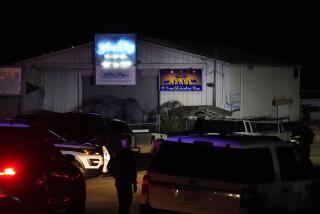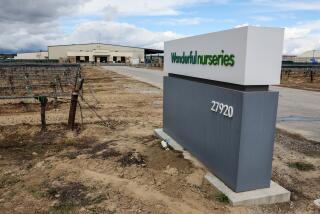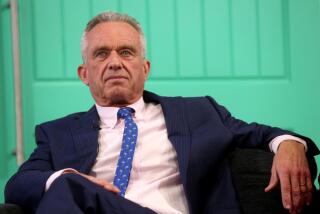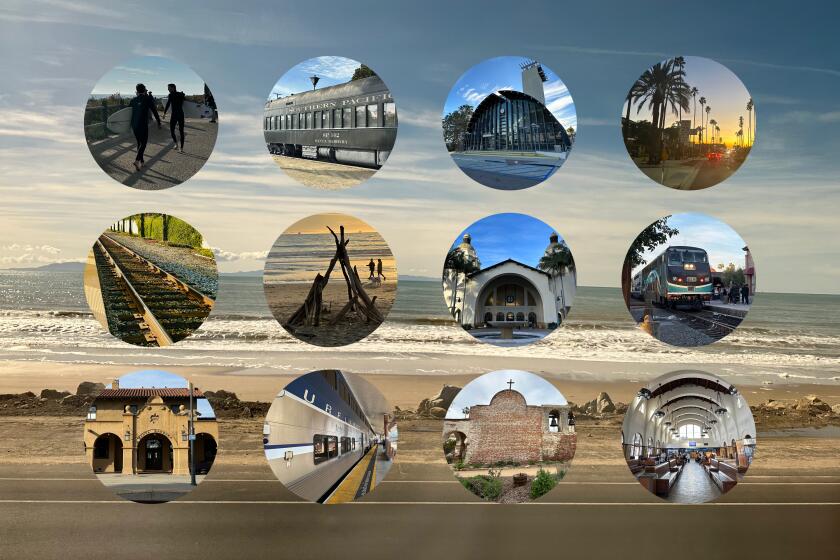Requiem for César Chávez
Despite the rumble of locomotives idling on a track just a few yards away, there’s a sense of serenity at a memorial tucked into the foothills of the Tehachapi Mountains southeast of Bakersfield.
Statues of St. Francis of Assisi and Our Lady of Guadalupe stand on either side of a sculpted fountain from which water cascades into a small pool. In front of this stirring scene, a modest gravestone on a square of grass bears a simple inscription:
César Estrada Chávez
1927–1993
It’s a large monument for a man who never earned more than $30,000 a year — and definitely a bigger tribute than the short-statured, modest man would have wanted. Yet as Paul Chávez, César’s son, sits quietly, listening to the water and the birds and, yes, even the train, he declares it a fitting memorial to the man who championed the plight of itinerant farm laborers, thereby revolutionizing the agriculture business in California and across America.
“Every time we were driving [through] California, and there was a fountain at a mission or a church, my dad would pull over and sit there and splash the water on himself to refresh him and to prepare him for the work ahead,” Paul Chávez said, recalling his boyhood when he and his siblings would join their father on organizing trips for the United Farm Workers, which he founded.
“Growing up, my dad didn’t come to our Little League baseball games. He took us to picket lines,” he said. “He would walk with us, and he would talk to us, and if we had problems, that’s what we would talk about.”
THE BEST WAY TO KEENE, CALIF.
From Los Angeles, take Interstate 5 north to Highway 14 north toward Palmdale. Continue on California 14 to California 58 west. Take exit 139 toward Keene. Turn right at Woodford-Tehachapi Road.
National Chávez Center, 29700 Woodford-Tehachapi Road, Keene; (661) 823-6134, https://www.nationalchavezcenter.org. Call for visitor center hours and tours. Admission: $3.
The early base for the farmworkers movement was in Delano, in the central San Joaquin Valley, where César’s wife, Helen, toiled in the fields as the rest of her family fought for migrants’ rights. In 1971, the base shifted to Keene. The UFW still has its headquarters here, just down the hall from Paul’s office, where he oversees the National Chávez Center, an ever-expanding tribute to his father that includes the memorial, a visitor center and a conference facility.
Visitors learn of César Chávez’s work from documentaries screened in the small auditorium. Then, they can wander through the exhibits that tell the story of the man’s tireless, nonviolent struggle to provide workers and their families with safe working conditions, a living wage and affordable housing.
The walls are adorned with posters and photographs, some of which depict public figures such as Robert Kennedy and actor Martin Sheen, who supported Chávez’s efforts. Along one wall stands a replica of a tiny one-room, tin-roof shanty in which several people would take shelter before moving on to another crop-picking site and another shack.
“He would tell workers, ‘We’re not in this for better wages and conditions and job protections. It’s really a fight for respect,’” Paul said. “‘When they respect you as a human being, then they’re going pay you a decent wage and put you to work in humane conditions and treat you like a man.’”
The visitor center is built around the large room that served as César Chávez’s office the last 22 years of his life. Behind a glass partition, everything remains as it was when he died in 1993: A legal pad on his cluttered desk contains notes about plans for a picket line. A display of religious artifacts attests to his Catholic faith. And his sports coat, hung over the back of his chair, bears a red button reading “No Grapes,” in tribute to the UFW’s boycott of fruit picked by nonunion workers.
Just outside, up a small rise, sits the stunning yet simple memorial. A wooden cross stands behind the headstone, but there’s no epitaph on it.
“He was a man of few words,” Paul Chávez said.
But on a stone slab to St. Francis’ left is one telling quote from the man California honors each March 31 on César Chávez Day, his birthday:
“It is my deepest belief that only by giving our lives do we find life.”
More to Read
Sign up for The Wild
We’ll help you find the best places to hike, bike and run, as well as the perfect silent spots for meditation and yoga.
You may occasionally receive promotional content from the Los Angeles Times.






